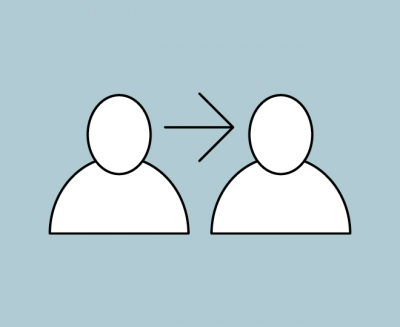CRIG Seminar 2023
The CRIG Seminar of 2023 is scheduled for early October with three webinars and workshops coming your way on Libraries and Social Change.
Libraries and Social Change
In 2023, the annual CRIG Seminar will be brought to you across three days, where each day will deliver a two-hour session. The event is free for staff from CAVAL Member institutions and current LIS-students, while tickets for staff from all other institutions are $33 (incl. GST)/session.
Please note that you need to register with the email address you will access Zoom from on the day of the event. In order to access the ticket type of your institution, please make sure this is your work email. If you would like to purchase multiple paid tickets for any of the sessions or require an invoice, please get in touch with This email address is being protected from spambots. You need JavaScript enabled to view it. for assistance.
Day 1. Shaping the future: libraries, technology, and social change
Tuesday 10 October, 9.00 – 11.00am AEDT
Academics from Australia and the United Kingdom will present two keynote presentations, which will be followed by a facilitated discussion led by Danni McCarthy.
Dr Gurnam Singh PhD, NTF, FRSA.
Dr Gurnam Singh is an activist researcher, writer, and educator whose work is dedicated to highlighting and disrupting systems and mechanisms of power, privilege, and violence that lead to human suffering and inequity. Currently, he is Hon Associate Professor of Sociology at the University of Warwick and Visiting Fellow in Race and Education, UAL, London. Formerly, he was Associate Professor of Education at Coventry University.
In 2005 Dr Singh completed a PhD at the University of Warwick focussing on anti-racist social work. In 2009 he was awarded a National Teaching Fellowship (NTF) for his work on critical pedagogy and higher education, and in 2018 was accepted as a Fellow of the Royal Society of the Arts (FRSA). He has published 4 books, over 40 peer review papers/chapters/review articles and 200 keynote conference papers on a wide range of issues, including, race, racism, anti-racism, diversity, decolonisation, ethics, higher education, and social work. Currently his work is focussed on all aspects of higher education and decolonisation with a particular focus on the rise of generative AI.
Recent relevant academic outputs during the past year:
- Singh, G (2023) Decolonising bibliographies, referencing and citational practices – Keynote at the CALC (Critical Approaches to Libraries Conference 24/25 May 2023.
Available at: https://www.youtube.com/watch?v=MPfrbE484I0 - Singh, G (2023) The age of artificial intelligence (AI) – lessons from history, presentation at the ‘Artificial Intelligence (AI), Race and Racism and Critical Pedagogies’ webinar, University of Warwick 1st June 2023.
Available at: https://warwick.ac.uk/fac/cross_fac/academy/activities/seminar/ai-and-race-webinar - Singh, G (2023) Has decolonisation of higher education reached a dead end? Lecture Series on Decolonising Academic Practice, 2023 Birmingham City University, 2nd May 2023.
Online presentation https://www.youtube.com/watch?v=mFl-cD7v7WU&t=22s - Singh. G (2023) Decolonisation and Identity Politics. Post 16 Educator. 112 July -Sept 2023. Pp12-15.
Available at: http://post16educator.org.uk/resources/archive/112/PSE-112-Singh-only.pdf - Singh, G. (2023) Decolonisation, whiteness, and anti-racist social work. In The Routledge Handbook of International Critical Social Work (pp. 343-357). Routledge.
Decolonising academic production in the age of generative artificial intelligence (AI): challenges and opportunities
The increased availability of Large Language Models (LLM’s), commonly known as AI, has opened up an important debate about all aspects of the nature and content of the curriculum in education. As with many other debates about new technologies, the emergence of AI apps such as ChatGPT is accompanied by familiar discourses of utopian or dystopian futures. Some educators seek to limit their use and focus on the dangers of AI in undermining student learning; others are embracing these developments and working towards productive ways of using such apps to enhance educational experiences. Against the backdrop of demands for the decolonisation of Higher Education, this presentation will do two things:
- explore both the nature of hierarchies of knowledge and their role in the production of colonial infrastructures, epistemologies and methodologies that have undermined marginalised and liberatory ways of knowing.
- explore the disruptive potential of AI to promote social justice for those most affected by the current unequal systems and conventions, specifically in relation to historically excluded students in higher education.
Professor Lisa M. Given, PhD, FASSA. Director, Social Change Enabling Impact Platform & Professor of Information Sciences, RMIT University
@lisagiven
Lisa M. Given, PhD, FASSA, is Director, Social Change Enabling Impact Platform, and Professor of Information Sciences at RMIT University (Melbourne). Her interdisciplinary research in human information behaviour brings a critical, social research lens to studies of technology use and user-focused design. Her studies embed social change, focusing on diverse settings and populations, and methodological innovations across disciplines. A former President of the Association for Information Science and Technology, Prof Given is a Fellow of the Academy of the Social Sciences in Australia and has served on the Australian Research Council’s (ARC’s) College of Experts. She holds numerous grants funded by ARC, Canadian Institutes for Health Research, and Canada’s Social Sciences and Humanities Research Council, working with university and community partners across disciplines. She is Editor-in-Chief of the Annual Review of Information Science and Technology, and lead author of Looking for Information: Examining Research on How People Engage with Information (2023). You can follow her on X/Twitter @lisagiven and read more about her work at https://lisagiven.com/.
Academic Librarians, Artificial Intelligence, and Social Change: How to Harness Technology Innovation and Support Positive Transformation
The rise of artificial intelligence (AI) tools has captured the public imagination for months. Yet, we remain unclear about the value of AI tools and how they will shape our home and work lives. In academic institutions, educators, administrators, and researchers are all struggling to understand the usefulness and limitations of these tools, including how they will affect our students, our research activities, and our communities.
AI tools can contribute to positive social change. They can help us to identify knowledge gaps, to analyse large amounts of data quickly and efficiently, and to reduce the time we spend on mundane tasks. However, positive change requires us to have a deep understanding of these tools’ benefits – and their limitations – or we risk using them to further entrench inequity. Academic librarians must mobilise and guide us in this new frontier.
From fostering critical thinking skills to guiding people towards appropriate adoption of new technologies, academic librarians have always been at the forefront of technological innovation. While AI tools present new challenges – from the lack of transparency in underlying datasets, to how these systems replicate bias and promote misinformation – academic librarians’ expertise in fostering digital literacy and supporting appropriate technology use is central to AI tools’ adoption for positive social change. Academic institutions are on the cusp of radical change, enabled by these technology tools. The time for academic librarians to lead us in this journey, is now.
Day 2. Library Practice Leading Social Change
Wednesday 11 October, 3.00 – 5.00pm AEDT
The keynote presentation will be followed by a number of lightning talks from a mix of invited speakers and the CAVAL membership responding to the theme of the day.
Dr Karen E. Fisher, Professor, Information School, University of Washington, and Embedded Field Researcher, UNHCR Jordan
FB: SeattleNewf
X/Twitter: @karenefisher
Zaatari Book on Amazon: https://a.co/d/33zlzCs
Dr Karen E. Fisher (Professor, Information School, University of Washington, and Embedded Field Researcher, UNHCR Jordan) is author of “Zaatari: Culinary Traditions of the World’s Largest Syrian Refugee Camp” (2024). In the US, she leads “Trauma in the Library” about staff PTSD.
Social Change with Syrian Refugees at Zaatari Camp, Jordan: Libraries, A Cookbook, and Bazaars
Created in 2012, Zaatari Camp lies on Jordan’s border with Syria and is home to over 83,000 refugees. A closed, high constraint, low resource camp that requires security permit to enter and for bringing in goods, there is not a single bookshop. In 2016 we created Zaatari Camp Libraries (ZCL)—the world’s first refugee-run, camp-wide library system. In this talk I discuss social innovation at Zaatari: 1) the founding, services, and challenges of ZCL, 2) our forthcoming book “Zaatari: Culinary Traditions of the World’s Largest Syrian Refugee Camp” (Goose Lane, 2024), co-created with 2000 Syrians and all royalties returning to camp, and 3) Zaatari Camp Creations, a refugee-led group that designs innovative products based on Syrian culture to support livelihoods.
![]() Lightning Talks
Lightning Talks![]()
1. Kendall Bartsch, Co-founder & CEO, Third Iron
Kendall Bartsch is the Co-founder and CEO of Third Iron. Kendall has worked with libraries for over 20 years and has worked at companies including Cambridge Scientific Abstracts and ProQuest.
Unlocking access to information wherever it is found
Millions of people from around the world are affiliated with libraries that provide access to millions of articles from hundreds of publishers. Yet, when searching for this information, both in library services and on the open web, the steps necessary to access this information are not always obvious. Denials of, or delays in, information access impede research and stifle innovation. This presentation will review how LibKey technology is being used by libraries’ websites to simplify and increase access to information.
2. Gemma Siemensma, Library Manager, Grampians Health
@gemmas1980
Gemma Siemensma is the Library Manager at Grampians Health. Her work interests relate to research, knowledge sharing and the integration of library resources for seamless access. In this role she ensures that health information is accessible across the health service so that evidence-based information is used to help deliver the best clinical outcomes. Her work also focuses on making the library an integral part of the organisation by looking for ways to position the library in non-traditional library spaces highlighting the value health libraries can bring to a clinical area.
Gemma is Convenor of the Australian Library and Information Association’s health special interest group - Health Libraries Australia.
Challenging imperfection: The MeSH experience
The MeSH (Medical Subject Heading) term for ‘Oceanic Ancestry Group’, which ‘Aboriginal Australians’ and a host of other Australian Indigenous terms is mapped to, was changed to ‘Native Hawaiian or Other Pacific Islander’ in the 2022 MeSH update. This lightning talk will document how raising an issue and demanding better of those who make decisions on our behalf, can impact change globally and give voice to those who need it most. Central to this is the importance of combining subject, technical and Indigenous expertise to enact such change.
3. Adam Ferris, Academic Skills Advisor (English/Writing), RMIT University
www.linkedin.com/in/adam-ferris-b34a07a4
With a background in foreign languages and applied linguistics, Adam Ferris enjoys working with students of all backgrounds, particularly culturally and linguistically diverse backgrounds. As someone who is neurodiverse, one of his current goals at RMIT is to help neurodiverse students have better access to study support services.
Matthew Millis, Academic Skills Advisor, RMIT University
https://www.linkedin.com/in/matthew-millis-353a83139/
After many years working in language education and translation, Matthew’s current role involves supporting students with their academic skills. He is passionate about inclusion, learning design, and creating meaningful learning experiences.
RMIT Neurodiverse Study Sessions
The Neurodiverse Study Sessions provide neurodiverse identifying students with a sensory friendly space in the RMIT Library where they can be themselves and study effectively. Learn about this joint initiative from the Study Support team, Equitable Learning Services and the RMIT Student Union (RUSU), and gain insights into what worked, what didn’t and how we as a community can continue to build more inclusive universities together.
4. Trish Hepworth, Director of Policy and Education, Australian Library and Information Association
[at]Trishh[at]ausglam.space on mastodon
Trish Hepworth is the Director of Policy and Education for the Australian Library and Information Association (ALIA). In her current role she oversees ALIA’s policy development and advocacy, professional standards and education activities. Trish enjoys working with a diverse range of stakeholders to support Australia’s library and information service to advance a socially just and progressive society.
Library leadership in times of challenge and protest
Libraries are no strangers to political-based dissent impacting their services and spaces. In recent times, public libraries across Australia have seen a surge in book challenges and protests, mostly targeted at LGBTQIA+ materials and programs, while academic libraries have faced challenges around Pride-based exhibitions and LGBTQIA+ welcoming spaces. In this lightning talk, ALIA’s Director of Policy and Education, Trish Hepworth, will give a quick overview of the situation and response at national and international level, and what role library staff have when social change is challenged on library shelves and in library spaces.
5. Lydia Hartwig, Learning Librarian/Gender & sexual diversity stream leader, La Trobe University
www.linkedin.com/in/lydia-hartwig95
Lydia has a Bachelor of Arts, Masters in Teaching, and a Graduate diploma of information and library studies. She is passionate about social justice, youth advocacy and participatory design in information institutions. She has experience working in public libraries and has been at the La Trobe University library for the last 18 months. Prior to that she spent several years in early childhood education and as an editor for a youth advocacy social platform designed to amplify the voices of marginalised young people.
Georgia Tsioukis, Learning Librarian/IDEA Network Accessibility Stream Leader, La Trobe University
www.linkedin.com/in/georgia-marie-tsioukis
Georgia Tsioukis is a learning librarian at La Trobe University Bundoora, with a passion for accessibility, equity, and inclusion. Her lived experience fuels her advocacy for diverse learning experiences based on Universal Design principles to break barriers creating more inclusive libraries.
Social change through advocacy: Introducing La Trobe University Library’s IDEA Network
As academic libraries grow to recognise their roles as social institutions, La Trobe University Library has responded by launching the IDEA Network.The IDEA Network is composed of library staff who act as social advocates in the areas of accessibility, Indigenous equity and inclusion, cultural and linguistic diversity, as well as gender and sexual diversity. It is dedicated to enhancing the experience of all the library’s users through the guiding principles of Inclusion, Diversity, Equity and Accessibility (IDEA).In their presentation, Lydia and Georgia will introduce the IDEA Network and showcase the collective ability of the network to create an equitable, inclusive, accessible, and representative library environment for their diverse student, academic, and community cohorts.
Please note, a recording of Trish’s presentation will not be available after the event.
Day 3. The Always Already of Open Educational Practice (workshop)
Thursday 12 October, 10.00am – 12.00pm AEDT
Open Education is underpinned by the belief that knowledge and the processes of knowledge production should be shared and sharable. Importantly, it privileges the empowerment of students as producers and contributors to their learning rather than passive receivers of educational experiences. However, the question must be asked, who has the capabilities to do this kind of complex work?
By taking a strengths-based approach openness is reframed as an idea beyond the binary position of open or closed. Instead, we imagine the abundance of openness available to us as a catalysing agent for change, transformation and growth. Indeed, open education is an enabling idea that is always already available to us. It shows up in who we are and the way we work. Building an open practice, then, can be identified by engaging in behaviours that surface, celebrate and cultivate ways of “working open”. These behaviours give rise to the Open Practitioner as a professional identity that embodies the capabilities and conditions for student success, retention and institutional belonging wherever they may be.
This structured dialogic workshop is responsive to the provocation: Who can be an Open Practitioner, and what can they do? This session will identify new ways of working together that engage and empower our higher education community and perhaps even move us toward sector-wide transformation and the becoming of the open educational practitioner.
Danni McCarthy, Senior Lecturer and Open Education and Digital Practice Lead, Deakin University
https://www.linkedin.com/in/danielle-mccarthy-sfhea-085a0650/
Danni McCarthy is a Senior Lecturer and Open Education and Digital Practice Lead at Deakin University. In this role, Danni provides strategic leadership that frames open and intentionally designed education environments that maximise learner participation and achievement. Key aspects of this work are evidence-based practice and equity drivers. McCarthy has extensive experience in the arts, education, disability and inclusion fields, demonstrating a commitment to high-quality, equitable educational practice through a Senior Fellowship of the Higher Education Academy. Research interests feature creative and experimental projects that explore the ethics of relationships at the interstices of bodies and technologies.





